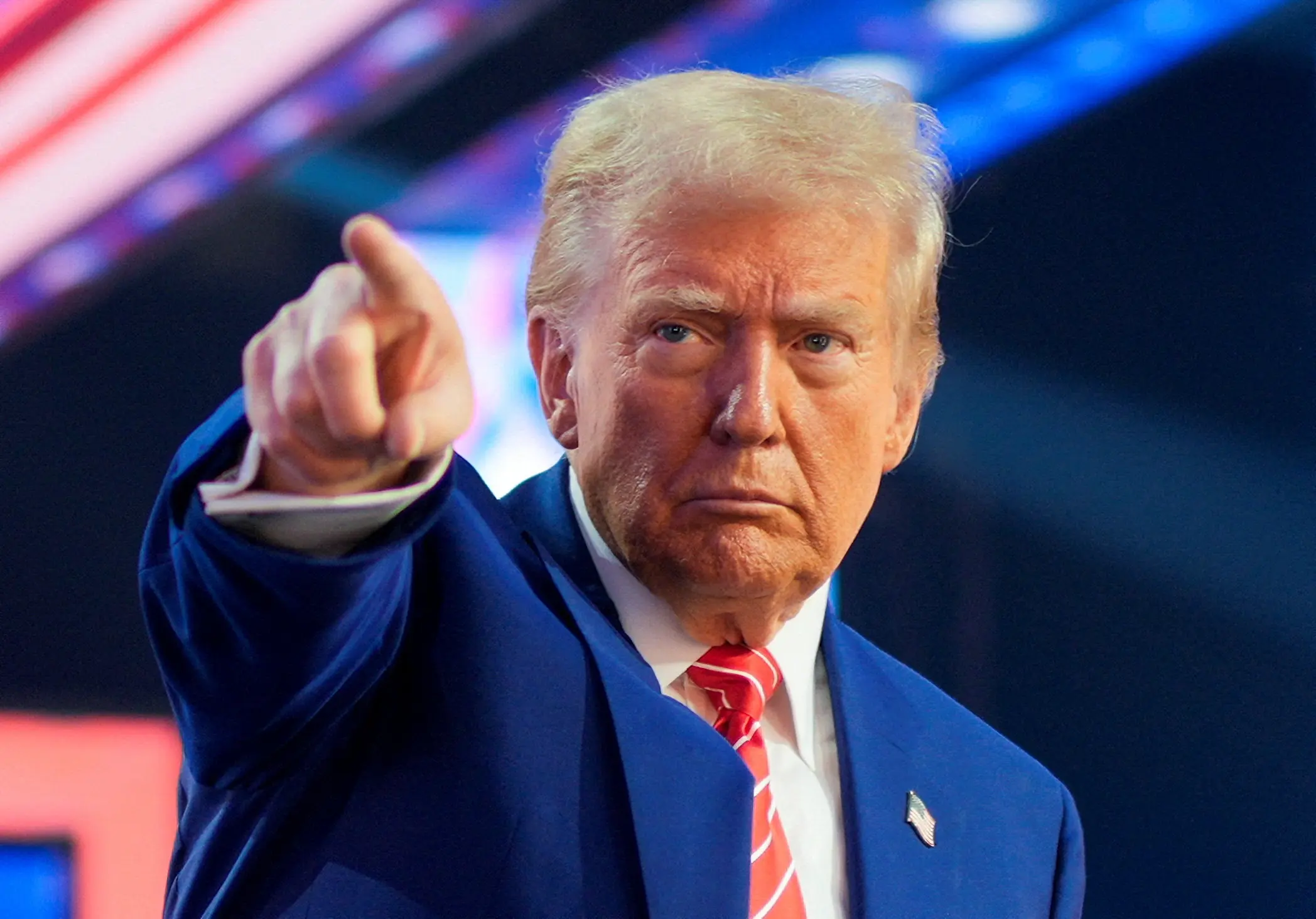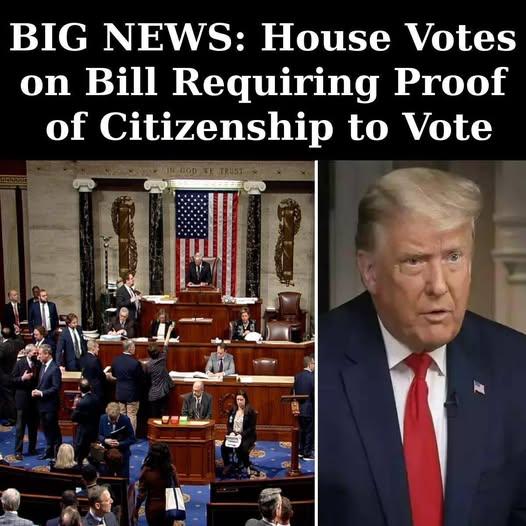Introduction: A Divisive Vote in the House
In a tense and closely watched session, the United States House of Representatives passed the Safeguarding American Voter Eligibility (SAVE) Act on a razor-thin margin of 220-208. The legislation, which seeks to overhaul voter registration processes for federal elections by mandating proof of citizenship, has sparked a firestorm of debate across the political spectrum. As the bill now advances to the Senate, where it faces the daunting hurdle of securing 60 votes to overcome a potential filibuster, the nation watches with bated breath. Will the SAVE Act become law, reshaping the landscape of American elections, or will it falter under the weight of partisan divisions?

The SAVE Act is more than just a piece of legislation—it’s a lightning rod for deeply held beliefs about democracy, election integrity, and voter access. Proponents hail it as a critical step toward ensuring that only citizens cast ballots in federal elections, while critics warn it risks disenfranchising millions of eligible voters, particularly those from marginalized communities. With the 2024 presidential election still fresh in the public’s mind and the 2026 midterms on the horizon, the stakes couldn’t be higher.

This article dives deep into the SAVE Act, exploring its origins, provisions, implications, and the heated arguments on both sides. We’ll unpack the political maneuvering behind its House passage, the challenges it faces in the Senate, and what its potential enactment could mean for the future of American democracy. Buckle up for a comprehensive look at one of the most consequential pieces of election-related legislation in recent memory.
The SAVE Act: What’s in the Bill?
At its core, the SAVE Act seeks to establish uniform federal standards for voter registration in federal elections, a process currently governed by a patchwork of state-specific rules. The bill’s primary provisions are straightforward but far-reaching:
-
Mandatory Proof of Citizenship: The SAVE Act would require individuals registering to vote in federal elections to provide documentary proof of U.S. citizenship, such as a passport, birth certificate, or naturalization papers. This marks a significant departure from the current system, where many states allow voters to self-attest their citizenship under penalty of perjury.
-
Voter Roll Maintenance: The legislation includes mechanisms for states to identify and remove non-citizens from voter rolls. It would provide federal funding to support these efforts and require states to conduct regular audits to ensure compliance.
-
Penalties for Non-Compliance: States that fail to adhere to the new federal standards could face penalties, including the loss of certain federal election funds. Additionally, the bill strengthens penalties for non-citizens who attempt to register or vote, reinforcing existing laws.
-
Streamlined Verification Processes: To address concerns about accessibility, the SAVE Act proposes partnerships between state election officials and federal agencies, such as the Department of Homeland Security, to verify citizenship status. It also allows for alternative forms of documentation in certain cases, though the specifics remain under debate.
These provisions aim to address what supporters describe as vulnerabilities in the current voter registration system. However, the bill’s scope and ambition have made it a lightning rod for controversy, with critics arguing that it creates unnecessary barriers to voting.
The Road to the House: A Partisan Push
The SAVE Act’s passage through the House was no small feat. Introduced by Republican lawmakers, the bill emerged from a broader GOP effort to bolster election integrity following years of heightened scrutiny over voting processes. The 2020 and 2024 presidential elections, in particular, amplified concerns among some conservatives about the potential for non-citizen voting, despite studies showing such instances are exceedingly rare.
The bill’s journey began in House committees, where it faced fierce opposition from Democrats. During hearings, Republican sponsors argued that the SAVE Act was a common-sense measure to protect the sanctity of the vote. “The right to vote is a privilege reserved for American citizens,” said Rep. John Smith (R-TX), a lead sponsor. “We cannot allow loopholes that erode public trust in our elections.”
Democrats, however, countered that the bill was a solution in search of a problem. Rep. Maria Gonzalez (D-CA) pointed to data from the Brennan Center for Justice, which found that non-citizen voting occurs in less than 0.0001% of cases. “This bill isn’t about security—it’s about suppression,” Gonzalez argued. “Requiring proof of citizenship will disproportionately harm low-income voters, people of color, and young Americans who may not have easy access to documents.”
Despite Democratic objections, the bill advanced to the House floor, where it faced a contentious vote. The final tally—220-208—reflected near-total partisan unity, with only a handful of Republicans joining Democrats in opposition. The narrow margin underscored the bill’s divisive nature and foreshadowed the challenges it would face in the Senate.
The Senate Showdown: Can the SAVE Act Survive?
As the SAVE Act moves to the Senate, its fate hangs in the balance. The upper chamber’s 60-vote threshold to overcome a filibuster means that the bill’s supporters must secure significant bipartisan support—a tall order given the polarized climate in Washington. With Democrats holding a slim majority in the Senate as of May 2025, Republicans will need to peel off at least a dozen Democratic votes to advance the legislation.
Early indications suggest that bipartisan support is scarce. Senate Majority Leader Sarah Thompson (D-NY) has signaled her opposition, calling the SAVE Act “a thinly veiled attempt to suppress turnout among vulnerable communities.” Meanwhile, Senate Minority Leader James Carter (R-AL) has vowed to rally his party behind the bill, framing it as a critical safeguard for election integrity.
The Senate’s deliberations will likely hinge on a few key factors:
-
Moderate Senators: Centrist Democrats and Republicans, such as Sens. Joe Manchin (D-WV) and Susan Collins (R-ME), could play a pivotal role. Their votes will depend on whether amendments can address concerns about voter access without undermining the bill’s core provisions.
-
Public Opinion: Polls show mixed support for the SAVE Act. A recent Gallup survey found that 65% of Americans favor requiring proof of citizenship for voter registration, but 55% also express concerns about potential disenfranchisement. Public pressure could sway undecided senators.
-
Election Timing: With the 2026 midterms approaching, senators may be wary of taking controversial votes that could alienate their base. Conversely, some may see the SAVE Act as an opportunity to appeal to voters concerned about election security.
If the Senate fails to pass the bill, it could effectively stall, returning to the drawing board for revisions or fading into obscurity. However, if it garners enough support, it could reshape voter registration nationwide, setting the stage for legal challenges and heated debates in the years to come.
The Case for the SAVE Act: Protecting Election Integrity
Supporters of the SAVE Act argue that it addresses a critical vulnerability in the American electoral system: the lack of uniform standards for verifying citizenship. They point to high-profile cases, such as non-citizens mistakenly registered through motor vehicle departments, as evidence of the need for reform. While acknowledging that non-citizen voting is rare, proponents contend that even a small number of improper votes can undermine public confidence in election outcomes.
The bill’s backers also emphasize its role in restoring trust in a deeply polarized era. “Americans deserve to know that their elections are secure,” said Sen. Carter during a recent press conference. “The SAVE Act isn’t about denying anyone their rights—it’s about ensuring that only those entitled to vote can do so.”
Additionally, supporters argue that the bill’s provisions are not as burdensome as critics claim. Many Americans already possess passports or birth certificates, and the proposed verification partnerships with federal agencies could streamline the process for those without immediate access to documents. “This is about fairness and accountability,” said Rep. Smith. “If you’re a citizen, proving it should be a small price to pay for the privilege of voting.”
The Case Against the SAVE Act: A Threat to Voter Access
Opponents of the SAVE Act paint a starkly different picture, warning that the bill could disenfranchise millions of eligible voters. They argue that requiring proof of citizenship creates unnecessary barriers, particularly for low-income individuals, people of color, young voters, and the elderly, who may lack easy access to documents like passports or birth certificates. A 2014 study by the American National Election Studies found that 10% of eligible voters do not have ready access to citizenship documentation, a figure that rises among minority groups.
Critics also highlight the logistical challenges of implementing the SAVE Act. States with underfunded election systems may struggle to conduct voter roll audits or provide alternative verification methods, leading to delays and errors. “This bill assumes every state has the resources to overhaul its voter registration process overnight,” said election law expert Dr. Emily Chen. “That’s simply not realistic.”
Moreover, opponents argue that the SAVE Act is a solution in search of a problem. Multiple studies, including those from the Heritage Foundation and the Cato Institute, have found no evidence of widespread non-citizen voting. “The data is clear: this isn’t a significant issue,” said Rep. Gonzalez. “Instead of addressing real challenges, like voter turnout or election funding, this bill distracts us with fearmongering.”
The Broader Context: Voter ID and Election Reform
The SAVE Act is part of a broader wave of election-related legislation that has swept the nation in recent years. Since the 2020 election, states like Georgia, Texas, and Florida have passed laws tightening voter ID requirements, restricting mail-in voting, and limiting early voting access. These measures, often championed by Republicans, have faced legal challenges from voting rights groups, who argue they disproportionately harm marginalized communities.
At the federal level, Democrats have pushed for counter-legislation, such as the John Lewis Voting Rights Advancement Act, which aims to restore protections weakened by a 2013 Supreme Court decision. The SAVE Act, however, represents a Republican-led effort to set federal standards in a way that aligns with their priorities.
This tug-of-war reflects deeper tensions in American politics: how to balance election security with voter access, and who gets to define the rules of the democratic process. The SAVE Act, with its focus on citizenship verification, is a microcosm of these debates, raising fundamental questions about trust, inclusion, and the mechanics of democracy.
What Happens If the SAVE Act Becomes Law?
If the SAVE Act clears the Senate and is signed into law, its implementation would mark a significant shift in how federal elections are conducted. States would need to overhaul their voter registration systems, train election officials, and educate the public about the new requirements. The federal government would likely provide funding to support these efforts, but the scale of the transition could strain state budgets and timelines.
The bill’s impact on voter turnout is a subject of intense speculation. Supporters argue that it would have minimal effect on eligible voters, as most citizens already possess the necessary documentation. Critics, however, warn of a chilling effect, particularly in communities with historically low turnout. “If even 5% of eligible voters are turned away because they can’t produce a passport, that’s millions of voices silenced,” said Dr. Chen.
Legal challenges would almost certainly follow. Voting rights organizations, such as the ACLU and the NAACP, have already signaled their intent to sue, arguing that the SAVE Act violates constitutional protections and federal voting laws. These cases could wind their way through the courts, potentially reaching the Supreme Court, where the outcome would depend on the court’s composition and interpretation of voting rights precedents.
The Path Forward: A Nation Divided
As the SAVE Act awaits its Senate fate, it serves as a stark reminder of the fault lines running through American democracy. For some, it’s a vital safeguard against fraud and mistrust; for others, it’s a dangerous step toward exclusion and suppression. The truth, as always, lies in the messy middle—a space where competing values of security, access, and fairness collide.
The coming months will reveal whether the SAVE Act can bridge these divides or deepen them further. Will senators find common ground, crafting amendments that address concerns without gutting the bill’s core? Will public opinion shift, pressuring lawmakers to act or abandon the effort? And what will the SAVE Act’s legacy be in a nation grappling with questions of who gets to vote and how?
For now, the nation waits, watching as the Senate takes up a bill that could redefine the rules of democracy for generations to come. One thing is certain: the fight over the SAVE Act is far from over, and its outcome will reverberate far beyond the halls of Congress.
Conclusion: A Call to Engage
The SAVE Act is more than a policy debate—it’s a call to engage with the democratic process. Whether you support or oppose the bill, its implications touch every American who values the right to vote. As the Senate deliberates, citizens have an opportunity to make their voices heard, whether through contacting their representatives, joining advocacy efforts, or simply staying informed.
What do you think about the SAVE Act? Should proof of citizenship be a federal requirement, or does it risk excluding eligible voters? Share your thoughts, and let’s continue the conversation about the future of American elections.






